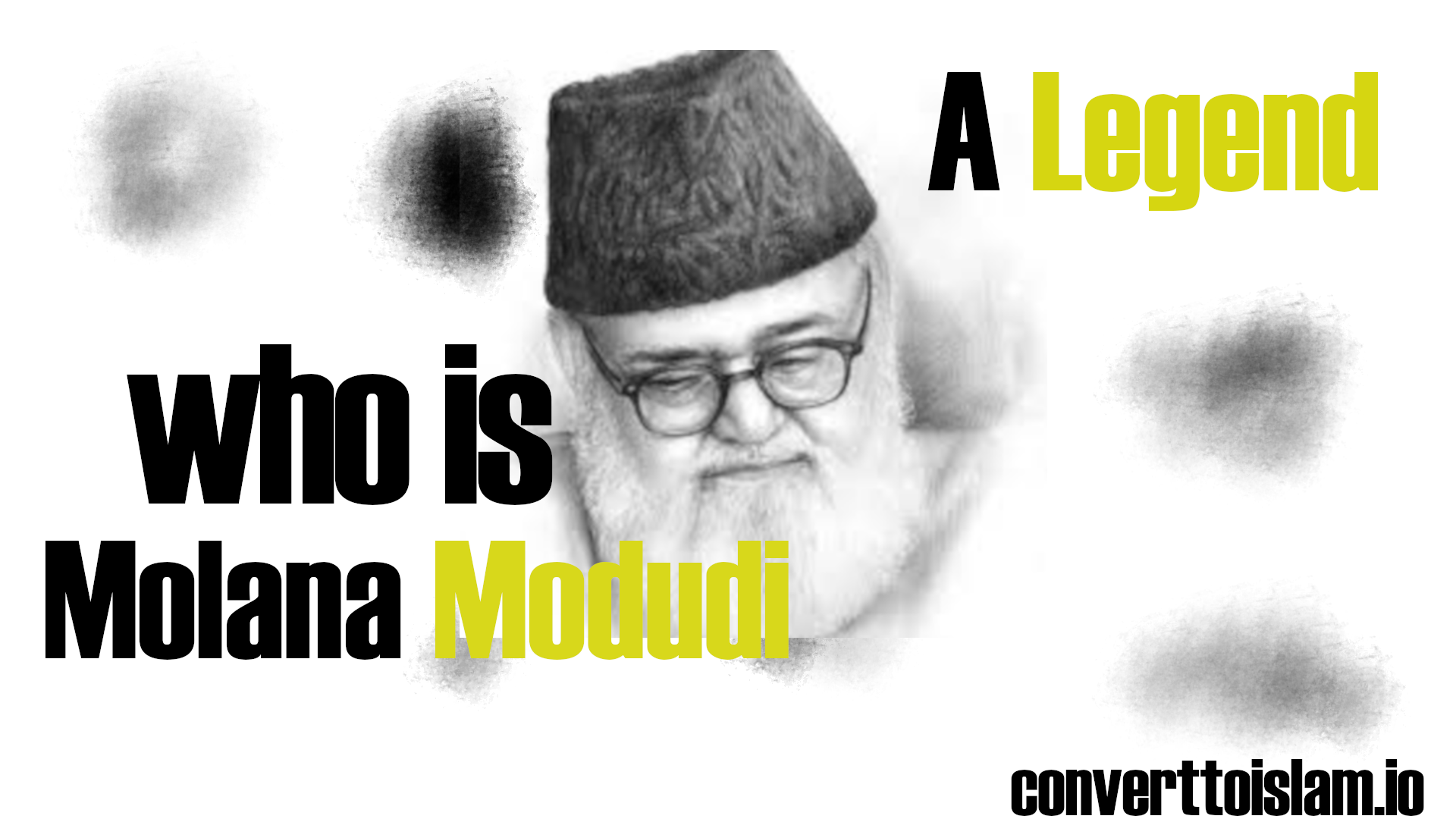Listen to this article
Syed Abul A’la Maududi: A Visionary Islamic Thinker and Reformer
Early Life and Background
Born on September 25, 1903, in Aurangabad, Hyderabad Deccan (British India), Syed Abul A’la Maududi (also spelled Mawdudi or Modudi) grew up in a deeply religious and scholarly family. His father, Syed Ahmad Hasan Maududi, was a lawyer with a strong commitment to Islamic teachings, ensuring that young Maududi received a solid religious foundation. The family proudly traced its lineage back to Prophet Muhammad (PBUH) through Imam Ali (RA).
Due to health concerns, Maududi was primarily homeschooled, mastering Arabic, Persian, and Islamic sciences under private tutors. Unlike many scholars of his time, he did not attend a traditional Islamic seminary or Western-style university. Instead, he developed his intellectual prowess through self-study and journalism.
Journalism and Early Career
At just 17 years old, Maududi entered the world of journalism, writing for leading Urdu newspapers. His sharp intellect and deep understanding of Islamic principles quickly earned him editorial roles at publications like “Taj,” “Muslim,” and “Al-Jamiah.”
In 1932, he took a bold step by launching his own journal, “Tarjuman al-Qur’an,” which became a powerful platform for his revolutionary ideas. Through this publication, he challenged conventional interpretations of Islam, presenting it as a complete way of life rather than just a set of rituals.
Revolutionary Ideas and Intellectual Contributions
Maududi’s writings reshaped modern Islamic thought by:
- Rejecting secularism and Western imperialism
- Advocating for Sharia (Islamic law) as the foundation of governance
- Introducing the concept of “Theo-democracy”—a system where divine sovereignty guides political authority
His most famous work, “Tafhim-ul-Qur’an” (Understanding the Qur’an), is a 30-year masterpiece that blends classical Islamic scholarship with contemporary socio-political analysis. Unlike traditional commentaries, it was written in clear Urdu, making the Qur’an accessible to everyday Muslims. Today, it remains one of the most widely read and translated Qur’anic interpretations globally.
Founding Jamaat-e-Islami
In 1941, Maududi established Jamaat-e-Islami, the first organized Islamic political movement in South Asia. Its mission was to:
- Promote Islam as an all-encompassing system
- Oppose secular nationalism (including the Indian National Congress and Muslim League)
- Work toward establishing an Islamic state through peaceful means
After the 1947 Partition, the organization split into separate branches in India, Pakistan, and later Bangladesh, each adapting to its national context.
Role in Pakistan’s Formation and Political Struggles
After migrating to Pakistan in 1947, Maududi became a leading voice in shaping the country’s Islamic identity. He:
- Opposed secular governance, demanding an Islamic constitution
- Clashed with political leaders over the role of religion in state affairs
- Faced imprisonment multiple times for his opposition to government policies
Despite controversies, his ideas influenced Islamic movements worldwide, including Egypt’s Sayyid Qutb and other revivalist thinkers.
Criticisms and Debates
Maududi’s bold ideas attracted both admiration and criticism:
- Traditional scholars (ulama) questioned his interpretations of Islamic law.
- Secularists and liberals opposed his vision of an Islamic state.
- Some Muslims saw his approach as overly political, while others hailed him as a mujaddid (reviver of faith).
Yet, his impact on modern Islamic thought remains undeniable.
Final Years and Legacy
Maududi passed away on September 22, 1979, in Buffalo, New York, while receiving medical treatment. He was buried in Ichhra, Lahore, where his grave remains a site of reverence.
Enduring Influence
Today, Maududi is recognized as:
- A pioneer of political Islam
- A key intellectual behind Islamic revivalist movements
- A scholar who bridged classical and modern Islamic thought
His works, including “Towards Understanding Islam” and “Islamic Law and Constitution,” continue to inspire Muslims worldwide.
Famous Quotes
- “Islam is not just a set of rituals. It is a comprehensive system, a way of life.”
- “Sovereignty belongs to Allah alone. Man is only His trustee.”
Maududi’s legacy endures as Muslims around the world engage with his vision of Islam as a dynamic, all-encompassing guide for personal and societal transformation.

Leave a Reply